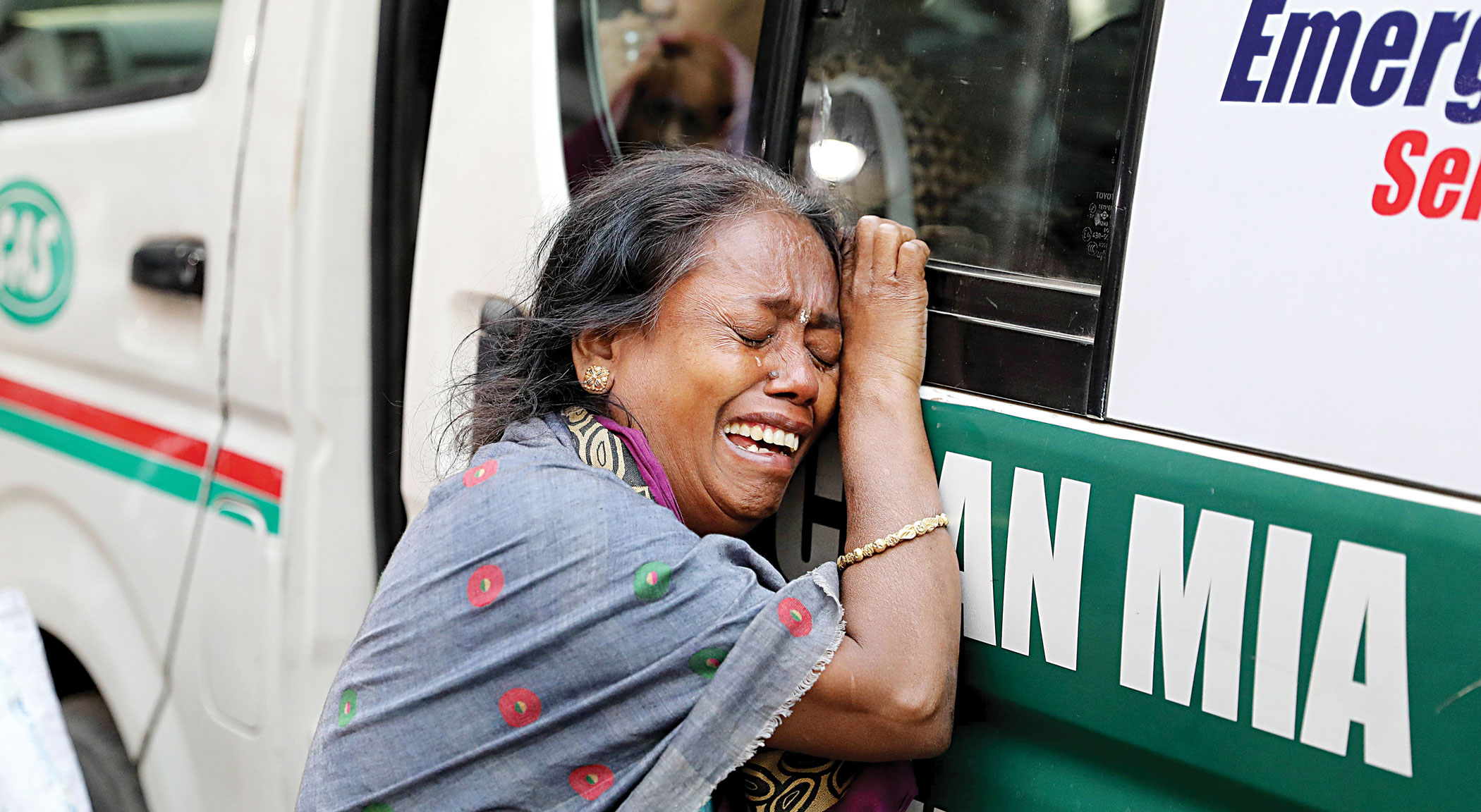'Almost all restaurants lack fire suppression systems'

There is hardly any restaurant in Bangladesh with a proper fire suppression system while only a handful among the owners are aware of fire safety measures, said a top leader of the Bangladesh Restaurant Owners' Association (BROA) yesterday.
There are at least 25,000 small and big restaurants in Dhaka city, of which around 5,000 are registered with the authority concerned, said Imran Hassan, secretary general of the BROA.
At least two and a half lakh workers are involved in all these restaurants but at best around 5 percent have received fire-safety training, he said.
Hassan was speaking to The Daily Star during an interview over a fire that broke out at a building housing at least 14 restaurants on Bailey Road in Dhaka on Thursday night. As of yesterday, at least 46 people have been declared dead.
"First of all, a restaurant kitchen must have a specialised fire protection system for the establishment to be granted the licence to run," he said.
A restaurant kitchen is nothing like ones in households as it must adhere to "3E" -- education, engineering and enforcement -- the three tiers of fire safety used in developed countries, he said.
It is also very important for all restaurant employees alongside owners to have knowledge of firefighting systems as well as fire-safety training, said Hassan.
But in practice, nobody properly follows such rules in Bangladesh and hardly any emphasis is given to fire-containment measures, he said.
Most restaurants in Bangladesh are sole proprietorships, for which there is a lack of accountability and as a result, fire incidents have been recurring, he said.
In an ideal world, licences should be provided only to those restaurants that abide by rules and regulations, said Hassan.
In reality, licences are "managed" from city corporations while entrepreneurs ignore environmental and fire-safety concerns, he said.
At least 12 to 14 government agencies, including the fire service and civil defence and Department of Environment, are responsible for ensuring compliance to regulations in the licence approval process, he noted.
The secretary general of the BROA alleged that these agencies were lax in their duties as they were not holding restaurant and building owners accountable.
Whenever flaws are detected during inspections, the restaurant and building owners "manage" the agencies through underhanded dealings, he alleged.
The agencies become vocal for a few days and impose fines on errant owners whenever there is a serious fire incident. But such activities gradually come to a stop and the restaurants continue running as they had been before, he said.
Whenever anyone takes to running a restaurant while ignoring fire suppression systems through the use of their financial abilities, they should take a moment to understand that the safety of people's lives is very important, even more than profits, said Hassan.
He believes fire safety should be ensured in the restaurant industry in the same way it was adopted by the garment industry under pressure from buyers.
However, the BROA has been able to serve no real purpose when it comes to fire prevention, he admitted.
"We tried to make the restaurant owners aware about fire safety and compliance issues as it is an industry…but nobody listens to us," claimed Hassan.
If a fire can erupt in a prominent place like Bailey Road, the restaurant owners, relevant government agencies and even the BROA are all liable, he said.




 For all latest news, follow The Daily Star's Google News channel.
For all latest news, follow The Daily Star's Google News channel. 
Comments